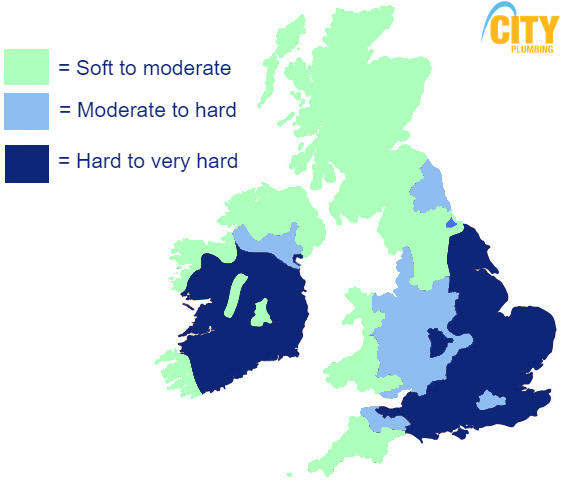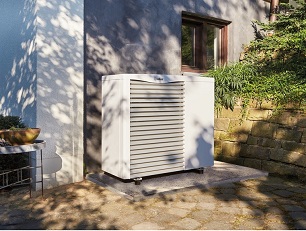Spiralling energy costs and increased environmental awareness has seen consumers looking for forward-thinking solutions in order to save money and increase long-term sustainability.
Money-saving experts are rife with suggestions on how to reduce everyday spending. But what advice can installers give to satisfy the consumer desire to minimise bills and improve household efficiency in the long term?
Water softeners may answer the call for customers who live in hard water areas, making household appliances and heating far more effective and cheaper to run. Here's everything you and your customers need to know about these handy devices.
Britain’s Limescale Problem
According to British Water, the heating elements inside boilers, showers, washing machines, dishwashers, and other appliances use around 12% more electricity when coated with just 1.6mm of limescale. Increase that to 3mm of limescale, and it’s 24% more electricity. This can result in people spending far more than they need to, at a time when prices are already through the roof.
Increased limescale also results in a greater number of breakdowns, and can significantly shorten the effective working life of many appliances.
Unfortunately for consumers (and their appliances), the majority of the UK population receives a hard water supply. The minerals (such as calcium and magnesium) found in hard water is what creates limescale buildup around the pipes and heating elements in white goods.
This means that those who receive hard water - well over 60% of the population - are using more energy and spending more money than is strictly necessary.

The Growing Popularity of Water Softeners
Hard water is an often overlooked issue, and installers can help consumers by discussing it with them. Water softeners are an effective yet affordable solution to virtually all of the problems caused by hard water.
The global water softener market was valued at $2,051 million in 2017 and is on track to reach $3,570 million by 2025 - and for good reason.
Those who have already installed them are reaping the benefits of cheaper bills, longer-lasting appliances, and better-tasting tap water. Consumers dealing with limescale problems often find that installing a water softener can help remove any existing scale.
When discussing water softeners with customers, installers should recommend efficient models to save consumers as much money as possible. Monarch water softeners are widely renowned for their efficiency, although any water softener with opti-brining technology will only regenerate the water when required. Opti-brining models can save around 15% on salt usage, and use between 30-40% less water than models without opti-brining.
Fortunately, modern water softeners are extremely compact and compatible with virtually any household. They are typically fitted under sinks, and newer models are fairly easy to fit. Look out for ‘Rapid-Fit’ to find models that are a doddle to install.
Water Softeners: A Long-term Solution
Consumers are savvier than ever, and most people worried about future spending are typically willing to pay more now to decrease costs later. They realise that efficient, sustainable equipment can pay for itself in the long run, so introducing customers to solutions that provide both financial and environmental benefit will certainly pique their interest.
Aside from the long-term economic, environmental, and longevity benefits we’ve spoken about so far, it’s worth discussing the positive lifestyle changes water softeners can provide to households.
As the name suggests, water softeners - well, soften the water. Most people with soft water appreciate the effects it can have on a household, including:
- Better washing machine & dishwasher results - water softeners improve washing machine effectiveness to promote luxurious-feeling clothes and fabrics. Dishwashers provide sparkling-clean dishes and glasses every time.
- Tastier drinking water - soft water tastes much cleaner and purer than hard water. People who regularly drink bottled water find that soft water tastes just as good.
- Better showers - soft water results in silky-smooth showers, and can be great for sensitive skin and skin conditions such as eczema. It also leaves hair feeling much softer after washing.
Small in stature but hugely effective, it’s little wonder that consumers are becoming increasingly aware of the positive effects a water softener can have on their household.
By making their customers aware of these benefits, installers can have a real impact when it comes to cutting costs, improving efficiency, and minimising the carbon footprint of households in hard water areas.
By taking advantage of this ever-growing sector, installers can maximise profits and increase customer satisfaction simultaneously.
City Plumbing stocks an extensive range of water softeners, including some of the most efficient and cost-effective models on the market. Give your customers the right products and click here to view our full range - with free next-day delivery on selected products, or click and collect from over 350 branches nationwide.
Other articles

What is a boiling water tap?
22 Mar 2022 ・ 4 mins

Everything you need to know about the Green Homes Grant
04 Mar 2022 ・ 8 mins



